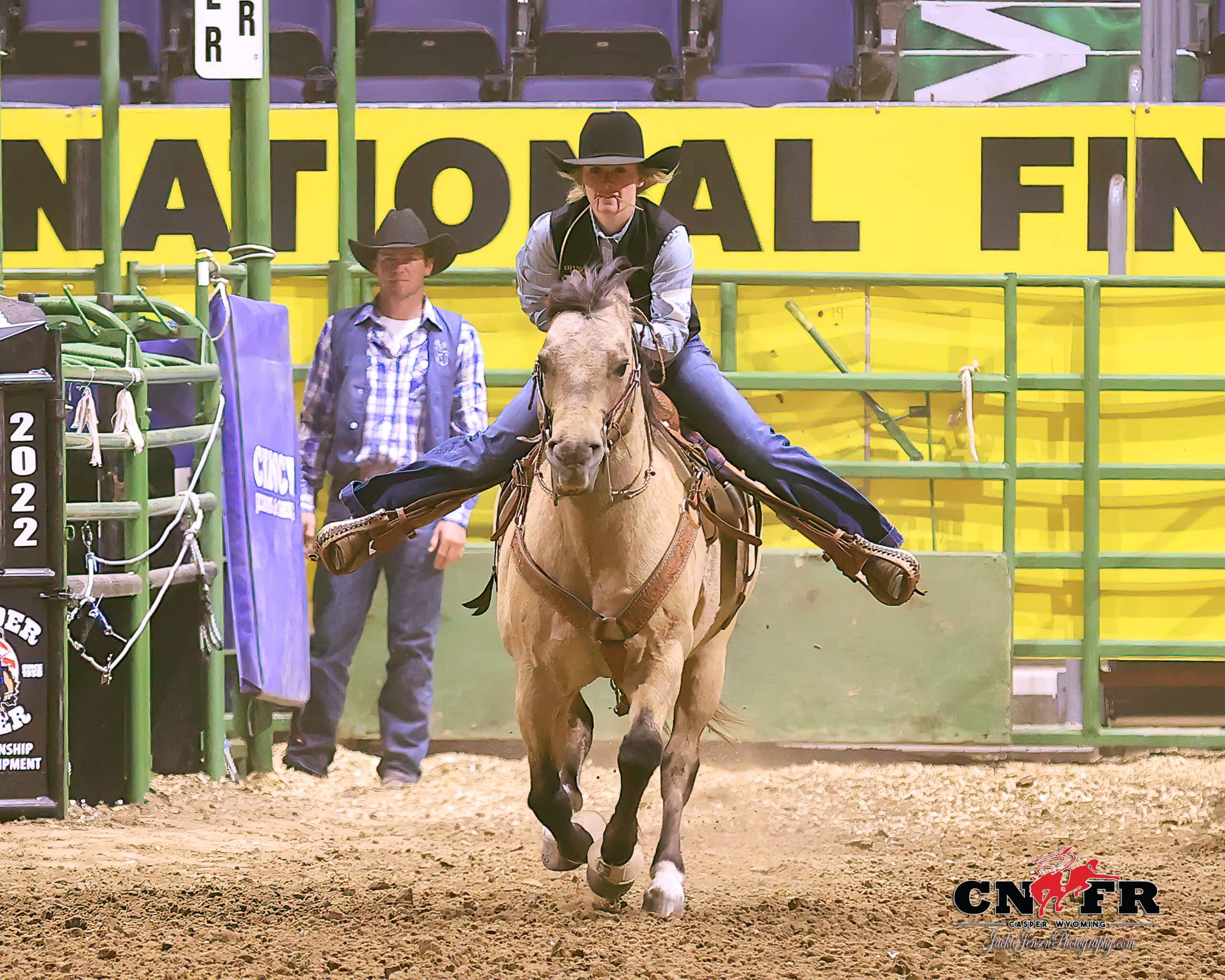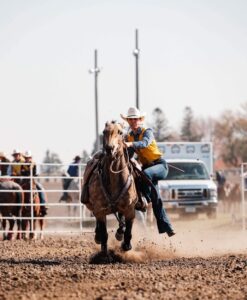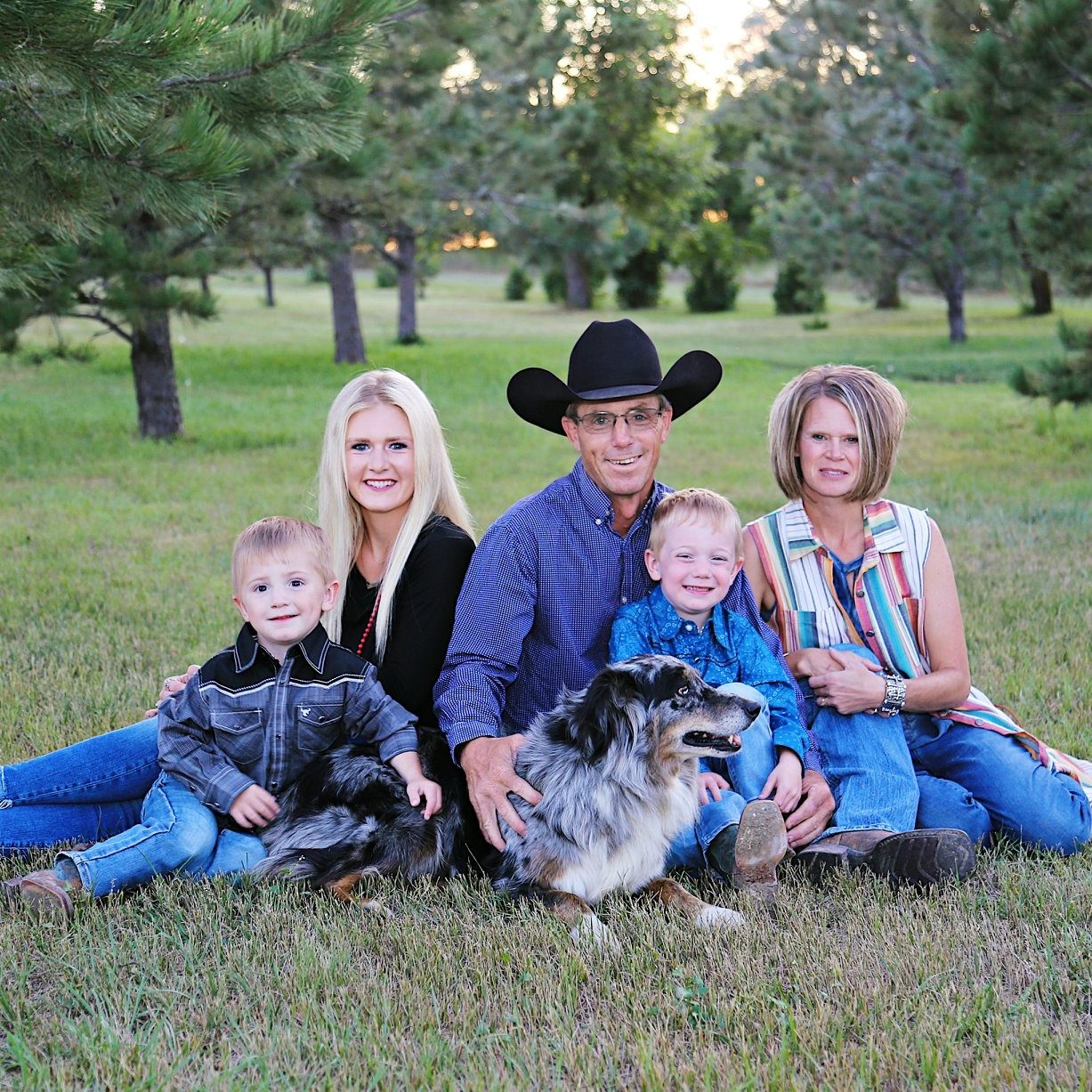Arena Leadership: Event Director View

College Rodeo offers many opportunities for an athlete to grow in leadership skills and leave a positive impact in the arena. One of those avenues is serving as an event director — the voice for the athlete and the livestock.
The event director is elected by their peers to oversee every component of a designated event and to help create a fair playing field for athletes to excel in. Directors are to be knowledgeable of the association rule book and be aware of all factors that may contribute to an athlete and/or livestock’s performance.
Experience and passion aid in being an effective event director, which is reflected in two young ladies that compete in the Great Plains College Rodeo Region: Cashae McGee of Rhame, N.D. and Madison Rotenberger of Ludlow, S.D.
The cowgirls bring a combination of 10 years of experience to the goat tying event director role. McGee and Rotenberger served as co-directors in North Dakota through their junior and high school years and currently are bringing their knowledge and passion of the event to the college arena.
Since the directors have different responsibilities within each of their events, I asked the ladies to share their responsibilities and a little insight on the role as goat tying directors.
What is the role of the goat tying event director?
The student athletes explained that directors furnish the goats for all the college rodeos. McGee said she supplied the goats for the fall season, while Rotenberger will bring goats for the spring season. They agreed the goal is to have a healthy set of uniform goats in weight to provide a fair shake for the competitors. Prior to each rodeo, the directors stake the arena, which is the distance from the starting line to the stake.
Rotenberger shared, “This has been fun for Cashae and me, as we both like to see competitors have fast times. We try and stake the arena at 100 feet, when possible, to give the goat tyers the best opportunity to tie in the 6 or 7 second range.”
Additional responsibilities for the directors that they highlighted include: enforcing the ground rules, taking times during the goat tying, collecting sponsorships, and the most challenging task: mediating any complaints the contestants might have.
Why did you choose to run for the director position?
McGee and Rotenberger said they began tying goats at an early age competing in local youth rodeos and their passion continued to grow in the arena and as an advocate for the event.
McGee said, “Madison and I decided to run together for goat tying director, since we have many years of experience to offer. We know the rules, and we are confident in our knowledge to be the voice and stand up for what is right.”
What have you learned serving as a college event director?
Rotenberger affirmed, “I’ve learned to speak up when I feel something isn’t right. It has given me a lot of appreciation knowing that I am there to help the contestants do the best they can.”
McGee added, “Throughout this position, I have learned leadership and communication skills with coaches, judges, and athletes.”

Madison Rotenberger, college rodeo event director [Photo: Front Paige Photography]
If a student is on the fence about running for an event director, what advice would you offer?
Rotenberger said, “I would relay, if you feel confident in knowing the rules of the event and have the resources to be a good event director like confidence, hard work, and dedication, than to go for it.”
McGee stated, “Knowing the rules of the event from top to bottom is key to being an effective director. You will be able to offer knowledgeable advice when questioned. Listen and support athletes when they bring forward concerns on the event as a whole or a specific run, refer to the rulebook — it is your friend. Lastly, this job isn’t always the easiest, it’s challenging, yet rewarding to be the voice for the event. It can also be a lot of fun and the experience is worth it. You will learn a lot along the way!

